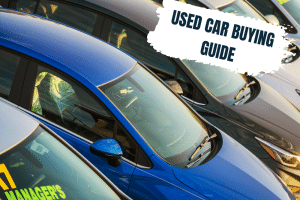
- The Savvy Promise
At Savvy, our mission is to empower you to make informed financial choices. While we maintain stringent editorial standards, this article may include mentions of products offered by our partners. Here’s how we generate income.
In this article
A fresh coat of paint can work wonders in revitalising the appearance of your car, whether you want to restore its original shine or give it a brand-new look. However, the cost of a car paint job can vary significantly depending on various factors. In Savvy’s helpful guide, you can explore the key elements which influence the cost of painting a car in Australia and gain a more comprehensive understanding of the expenses involved.
How much does car repainting cost in Australia?
The average cost of fully repainting or respraying a car in Australia can start from around $1,500 but many professionals will charge between $5,000 to $10,000. More expensive vehicles, such as luxury or fast, high-performance models, and larger cars are likely to cost more to repaint.
If you’re only looking to respray certain parts of your car and not the full vehicle, you can expect to pay less. Prices to repaint a car body panel such as a door, bumper or roof can start from around $200, though this can vary widely.
It’s important to note that these are just estimated figures. The true cost of your car’s repaint will ultimately come down to a range of factors specific to your car and where you’re getting it repainted.
Getting your car repainted can be expensive, so you might be tempted to take on the job yourself. If the damage is minor and you have the tools and ability, you could save money this way. For instance, if there’s only a small scratch or chipped paint, you may be able to use a paint touch-up pen. However, for bigger jobs, consider using a professional. While the costs may be high, this is not without reason. Alongside the cost of paint, the process is time-consuming, involving multi-stage prep work like cleaning, sanding and masking off areas before the application of multiple coats of paint, and requires skilled auto body technicians.
What factors affect the cost of painting a car?
As mentioned, it’s important to bear in mind that many factors impact the cost of respraying your car. As well as the type of car you own, its size and how much of it you’re having repainted, the following can all impact how much it’ll set you back:
- Quality of paint: one of the biggest cost factors is the quality of paint you decide to use. Most cars come with solid paint, which is generally the cheapest if you’re looking for a respray. However, matte or metallic paint could cost three to four times that amount, while pearlescent paint can also be pricey.
- Where you live: part of the cost simply comes down to where you’re living in Australia, as different states and territories can have different average costs. For instance, respraying a car in Melbourne may not cost the same as one in Adelaide.
- Whether there’s any damage to repair: if your car has any damaged parts which need to be repaired or replaced to have your car repainted, you can expect to pay extra for this to be done. Additionally, if there’s dirt or grime on your car which needs to be removed, you may have to pay extra for this to be dealt with.
- The detailer you choose: different companies will charge different amounts for the repainting of your car. If you’re looking for the cheapest available option, it might be worth getting multiple quotes to compare before taking your car in.
- Car insurance: your car insurance may cover painting costs if it's due to an accident or covered incident. If the respraying is unrelated to an incident occurring which is outlined in your policy, you’ll have to pay the full cost yourself.
Can I paint my car another colour?
In Australia, you are allowed to change the colour of your car. Most colours are acceptable and as changing your car’s colour is deemed a minor modification, it does not require certification. However, you will generally need to register the change with your state or territory’s road authority. Here’s how you can do it:
NSW: Your vehicle’s details can be changed at a Service NSW Centre. Changes may need to be verified by an authorised examiner. Find out more here.
VIC: You have 14 days to notify VicRoads of the change. No inspection is required. Find out more here.
QLD: Car owners will need to complete a Change of Vehicle Particulars Notification form. Modifications may be inspected. Find out more here.
SA: In South Australia, drivers must complete and submit an MR7 Application to alter vehicle or trailer details to a Service SA centre. Find out more here.
WA: Approval is not required to change the colour of your vehicle but you must complete a Change of Vehicle Details form. Find out more here.
NT: Minor modifications may be carried out with no approval required. Find out more here.
TAS: You can change the colour of your car without requiring an inspection. Find out more here.
ACT: Changes must be notified to Access Canberra within 14 days. Find out more here.
Can I wrap a car instead of repainting it?
Car wrapping is a process of covering a vehicle's original paint with a thin, adhesive vinyl film. This vinyl film, also known as a wrap, is applied directly over the paint, allowing the vehicle's appearance to be changed without altering the original paintwork. Car wrapping offers a wide range of colours, finishes and designs, including matte, gloss and metallic. It can be used for various purposes, such as customising the appearance of a vehicle, for advertising purposes or providing paint protection, and usually lasts for around five years.
Wrapping a car is often a more cost-effective option compared to repainting if your car’s finish is in good condition and you simply want to change the car’s appearance. However, it not a suitable alternative or quick fix for paint damage, as scratches, chips, rust and bad paint cannot be hidden by wrap. In such circumstances, the car’s surface will need to be sanded back and repainted before wrapping can take place.
Can paint damage affect my car’s resale value?
If you are selling your car, paint damage can affect your car's resale value, potentially by a significant amount. How much the price of your car is impacted depends on a number of factors such as:
- Severity of damage: minor scratches, scuffs or patches of sun damaged or faded paint will likely have a smaller impact compared to dents, deep scratches and rust spots.
- Visibility and location: damage on prominent areas like bumpers, doors or the bonnet will be more noticeable to buyers and have a greater impact on value.
- Number of damaged areas: a single scratch is less concerning than multiple damaged areas throughout the car.
- Quality of repairs: if there's existing paintwork, poorly done repairs can be a red flag to potential buyers, raising concerns about potential hidden damage and further lowering the value.
Besides visual appeal, damaged paint can sometimes indicate more serious underlying problems like rust or prior bodywork repairs. This can make buyers suspicious and less willing to buy the car. Potential buyers might also factor in the potential cost of repainting the car when considering the overall value.
If you want to sell your car but are concerned about the paintwork, consider getting quotes for professional repairs to weigh the cost against the potential increase in resale value. For small imperfections, there might be DIY touch-up options available, but ensure proper techniques and product use to avoid making the damage worse. Ultimately, if there's existing paint damage, disclose it upfront to potential buyers. Honesty builds trust and can help manage expectations.
Did you find this page helpful?
Author
Thomas PerrottaReviewer
Bill TsouvalasPublished on July 31st, 2023
Last updated on July 2nd, 2024
Fact checked
This guide provides general information and does not consider your individual needs, finances or objectives. We do not make any recommendation or suggestion about which product is best for you based on your specific situation and we do not compare all companies in the market, or all products offered by all companies. It’s always important to consider whether professional financial, legal or taxation advice is appropriate for you before choosing or purchasing a financial product.
The content on our website is produced by experts in the field of finance and reviewed as part of our editorial guidelines. We endeavour to keep all information across our site updated with accurate information.
Approval for car loans is always subject to our lender’s terms, conditions and qualification criteria. Lenders will undertake a credit check in line with responsible lending obligations to help determine whether you’re in a position to take on the loan you’re applying for.
The interest rate, comparison rate, fees and monthly repayments will depend on factors specific to your profile, such as your financial situation, as well others, such as the loan’s size and your chosen repayment term. Costs such as broker fees, redraw fees or early repayment fees, and cost savings such as fee waivers, aren’t included in the comparison rate but may influence the cost of the loan. Different terms, fees or other loan amounts may result in a different comparison rate.








